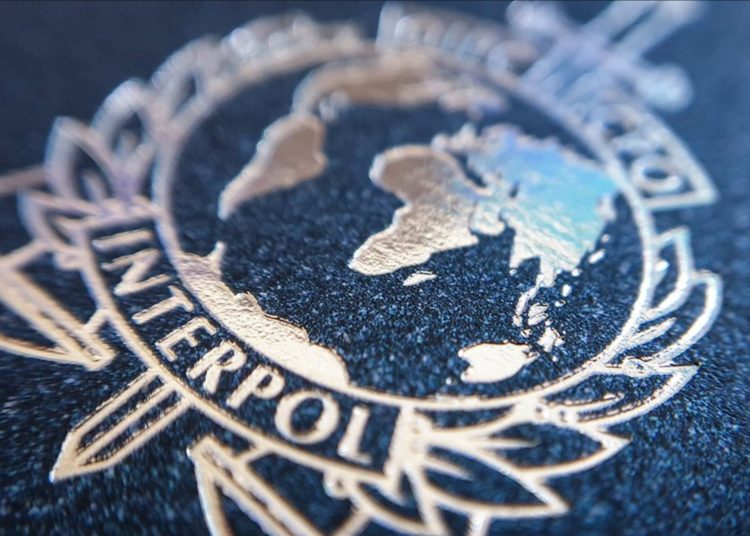Abdullah Bozkurt/Stockholm
Turkish authorities was embroiled in a domestic dispute over what to do about politically motivated filings for international arrest warrants that INTERPOL has rejected, citing violations of its constitution, an interagency communiqué obtained by Nordic Monitor has revealed.
The communiqué, signed by Emrah Özkan of the General Directorate of Foreign Relations at the Justice Ministry on February 2, 2021, told the Ankara Chief Public Prosecutor’s Office that a request for a Red Notice for a government critic had been rejected by INTERPOL.
He said a renewed request made by the court and transmitted by the prosecutor’s office for a Red Notice would not be appropriate or necessary given the fact that exactly the same charges and the same arrest warrants were added to support the second INTERPOL filing.
The case involved Turkish national Suat Yiğit (57), who is believed to be affiliated with the Gülen movement, a group that is critical of the government of President Recep Tayyip Erdoğan on a range of issues from pervasive corruption to Turkey’s aiding and abetting of armed jihadist groups. Yiğit faces two outstanding arrest warrants, issued in 2016 and 2017, in Turkey for his association with the group in what is seen as politically motivated charges that aimed to punish a government critic who had nothing whatsoever to with crime or terrorism.
Turkish government communiqué that shows the failure of an attempt to secure an INTERPOL Red Notice for a critic:
The Ankara 4th High Criminal Court, staffed by Erdoğan partisans, had sent a ruling to the Justice Ministry on January 30, 2017, asking the ministry to process the INTERPOL filing so that a Red Notice could be issued for Yiğit. The ministry sent the filing to the Interior Ministry’s Interpol/Europol department, which has access to the INTERPOL database. The INTERPOL Secretariat rejected the filing, saying it violated the core principle enshrined in its constitution that bars politically motivated requests.
That did not stop the Ankara court from a seeking a new INTERPOL filing. The court transmitted a new ruling through the prosecutor’s office on February 1, 2021, basically repeating the same claims and so-called evidence to support the Red Notice. However, the Justice Ministry, after reviewing the dossier sent by the court, concluded that there was nothing new that warranted a second attempt with INTERPOL.
“There is no need to submit a duplicate request,” the Justice Ministry warned, saying that a positive outcome in processing an INTERPOL Red Notice can only be possible with new evidence that can pass the scrutiny of the INTERPOL Secretariat.
Turkey also turned to an extradition treaty with the US to seek Yiğit’s handing over by the American authorities, but that request also failed, according to another communiqué.
The second communiqué, signed by Özkan on October 5, 2021, indicated that the US State Department requested additional information on the substance of the crimes allegedly committed by Yiğit as well as solid evidence. Özkan told the Ankara Chief Public Prosecutor’s Office to come up with what he described as a “case file review report” about Yiğit, listing the alleged crimes that Yiğit was personally involved in and concrete evidence that linked him to the alleged crimes.
He said the US government’s response must be shared with the Ankara 4th High Criminal Court, which issued an arrest warrant for Yiğit, urging the prosecutor’s office to include additional evidence that was collected against him since the first extradition request was filed with the US.
The communiqué reveals how the Erdoğan government abused the treaty with the US to file frivolous extradition requests that lacked solid evidence.
Turkish government communiqué that shows US authorities were not convinced about an extradition request filed for a critic:
In the last decade, Turkey has stepped up its campaign to hunt down political opponents, critics and dissidents beyond Turkish borders by aggressively abusing international mechanisms including INTERPOL, submitting extradition requests and asking for international arrest warrants based on sham cases and politically motivated charges.
As one of the most prolific transnational repressors, the Turkish government has not only abused INTERPOL’s notices system but also its messaging and diffusions, especially Lost and Stolen Passports, in order to maintain pressure on government critics abroad and muzzle critical journalists who still write about Turkish affairs from exile.
Cognizant of Turkey’s blatantly abusive and brazenly absurd requests, INTERPOL denied Turkey access to several fundamental services such as the SLTD Database (Stolen and Lost Travel Documents) in the past.
In justifying its refusal for Turkey’s entries, INTERPOL cited Article 3 of its constitution, which says, “[I]t is strictly forbidden for the Organization to undertake any intervention or activities of a political, military, religious or racial character.” It added that all filings made by the Turkish IINTERPOL department would be deleted and urged it not to file new requests.

The Parliamentary Assembly of the Council of Europe (PACE) in September 2017 stated that INTERPOL and its Red Notice system had been abused by Turkey in the pursuit of political objectives, to repress freedom of expression or to persecute members of the political opposition beyond its borders, in resolution number 2161, after Spanish police detained two journalists critical of the government with dual Swedish/Turkish citizenship and German/Turkish citizenship upon an INTERPOL notice issued by Turkey in August 2017.
In 2020 a report published by the US State Department on human rights practices underlined that there were also credible reports that the Turkish government attempted to use INTERPOL Red Notices to target specific individuals located outside the country, alleging ties to terrorism connected to a 2016 coup attempt or to the outlawed Kurdistan Workers’ Party (PKK) based on scant evidence.
The report also mentioned that according to Freedom House, an NGO advocating democracy, political freedom and human rights, since the 2016 coup attempt Turkey had uploaded tens of thousands of requests to INTERPOL for persons the government designated as affiliated with the Gülen movement.
There were also reports that individuals faced complications related to erroneous lost or stolen passport reports the government filed against suspected Gülen movement supporters in the years directly following the coup attempt. Targeted individuals often had no clearly identified role in the attempted coup but were associated with the Gülen movement or had spoken in favor of it. The reports to INTERPOL could lead to the individuals’ detention or could prevent them from traveling.












